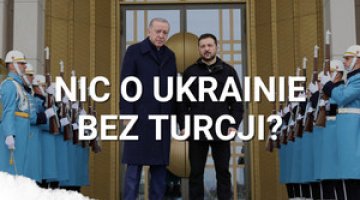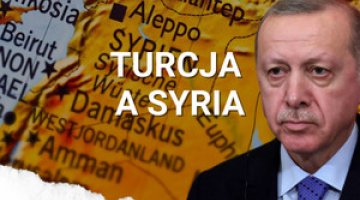Earthquake in Turkey: a test for the AKP
On 8 February, Turkey’s president Recep Tayyip Erdoğan declared a three-month state of emergency in the provinces affected by two 7.7 magnitude earthquakes that occurred two days earlier. The tremors affected the south-central part of the country and north-west Syria. A total of 10 Turkish provinces, home to about 13.5 million people including numerous clusters of Syrian refugees, were affected. The worst hit are Hatay, Kahramanmaraş, Adıyaman and Gaziantep, as well as Turkish-controlled areas of northern Syria. According to official data, as of 8 February, more than 9000 people had been killed and 52,900 injured. More than 6400 buildings were destroyed. According to experts, the initial amount of damage is between 35 and 50 billion dollars, while the region where the disaster occurred accounts for 10% of the country’s GDP.
Damage to residential and communication infrastructure is affecting all cities located in the earthquake area, which are still cut off from gas and (to a large extent) electricity supplies. Residential buildings – both newly commissioned and old alike – along with schools, hospitals, factories, highways, roads and bridges were either completely or significantly destroyed. The most serious damage affected the main highway connecting Adana with Gaziantep, making it difficult to deliver aid. The runway at the region’s most important airport in the city of Hatay was also destroyed. A fire broke out in İskenderun’s port, one of the largest in the Hatay province, and has not yet been extinguished. As a result of the rise in the water level, the sea is also flooding the city. A section of the Kahramanmaraş-Gaziantep gas pipeline was also destroyed, depriving the entire Hatay province of gas. As a precautionary measure, Turkey has suspended its crude oil supply (the Baku-Tbilisi-Ceyhan oil pipeline) to the Ceyhan export terminal, which accounts for 1% of global supplies (although no damage has been reported there).
96,000 people from the national search & rescue and support personnel and about 9000 soldiers of the Turkish Armed Forces are taking part in the rescue operation. Around 70 countries have provided support to Ankara in the form of equipment, people and humanitarian aid. The EU and NATO countries have in total provided the greatest aid. Along this, the largest rescue team was sent by Azerbaijan; while Russia, South Korea and China have also provided major support. The AFAD crisis management agency, which reports to the Minister of the Interior, is in charge of the operation and its coordination.
Commentary
- These latest earthquakes are the most powerful cataclysm to have befallen Turkey since at least 1939, and have created the largest humanitarian catastrophe in its modern history. The unprecedented rescue operation is being hindered by the weather conditions (including low temperatures), the destruction of communication infrastructure, and the insufficient availability of staff and equipment. Severe supply problems are affecting many places. It is currently not possible to accurately estimate the death toll or the damage to the infrastructure, not to mention the economic and social consequences for the entire region. It is also difficult to assess how the cataclysm will affect the local community of one and a half million Syrian refugees. The interdependence of the areas affected by the disaster on the Turkish and Syrian sides also remains unclear. North-west Syria, which is under Ankara’s military control, is economically and politically integrated with Turkey. The earthquake may trigger a massive wave of migration from this region to Turkey.
- Although the rescue operation has been criticised in Turkey for some actions and omissions, such critical voices are not overwhelming at this stage. The AFAD and the Turkish Armed Forces are fully committed to providing assistance in the disaster areas, but the scale of the destruction poses an unprecedented challenge. Ankara has received support from all over the world in the form of rescue and medical personnel being sent to the regions most affected by the shocks. This intensive foreign assistance has at least temporarily softened Turkey’s political and media rhetoric towards Western countries, which had been quite harsh in recent months.
- The earthquake struck just ahead of a turbulent campaign for the presidential and parliamentary elections scheduled for 14 May. They are taking place in a highly polarised society, where public support for the ruling coalition and the opposition is equally divided. The areas affected by the natural disaster, which are home to a sixth of the country’s population, are traditional bastions of support for the AKP. The political conflict had escalated in the run-up to the election, but at this moment it has been muted. The opposition is calling for national solidarity in the face of the tragedy, and remains cautious in assessing the measures taken by the government. The catastrophe will probably dominate the ongoing informal campaign, but its impact on support for individual parties cannot be prejudged. For the government, it is a chance to consolidate the nation and demonstrate the effectiveness of the state. In the future, it will most likely offer reconstruction projects and social programmes for the victims while maintaining leverage over media coverage. At the same time, however, the scale of the disaster, the long-lasting effects of the destruction and the obvious shortcomings of the rescue operation will play to the government’s disadvantage. The cataclysm will likely open up space to hold accountable those who are responsible for the construction policy that has been criticised for years: this sector is a pillar of the business support base for Erdoğan’s party. The earthquake is also a challenge for the opposition, which is still highly fragmented and has no strong leadership.





